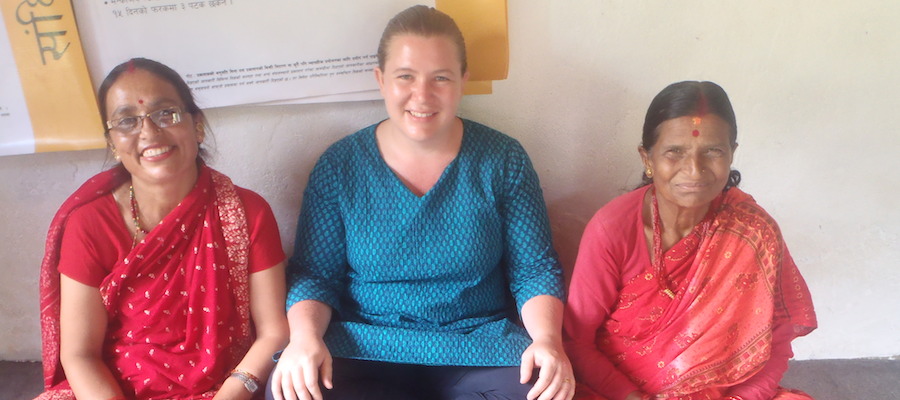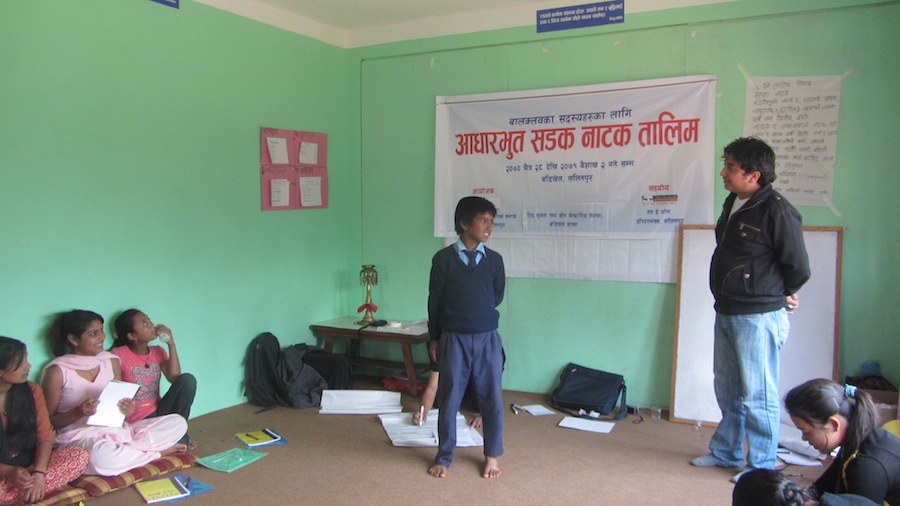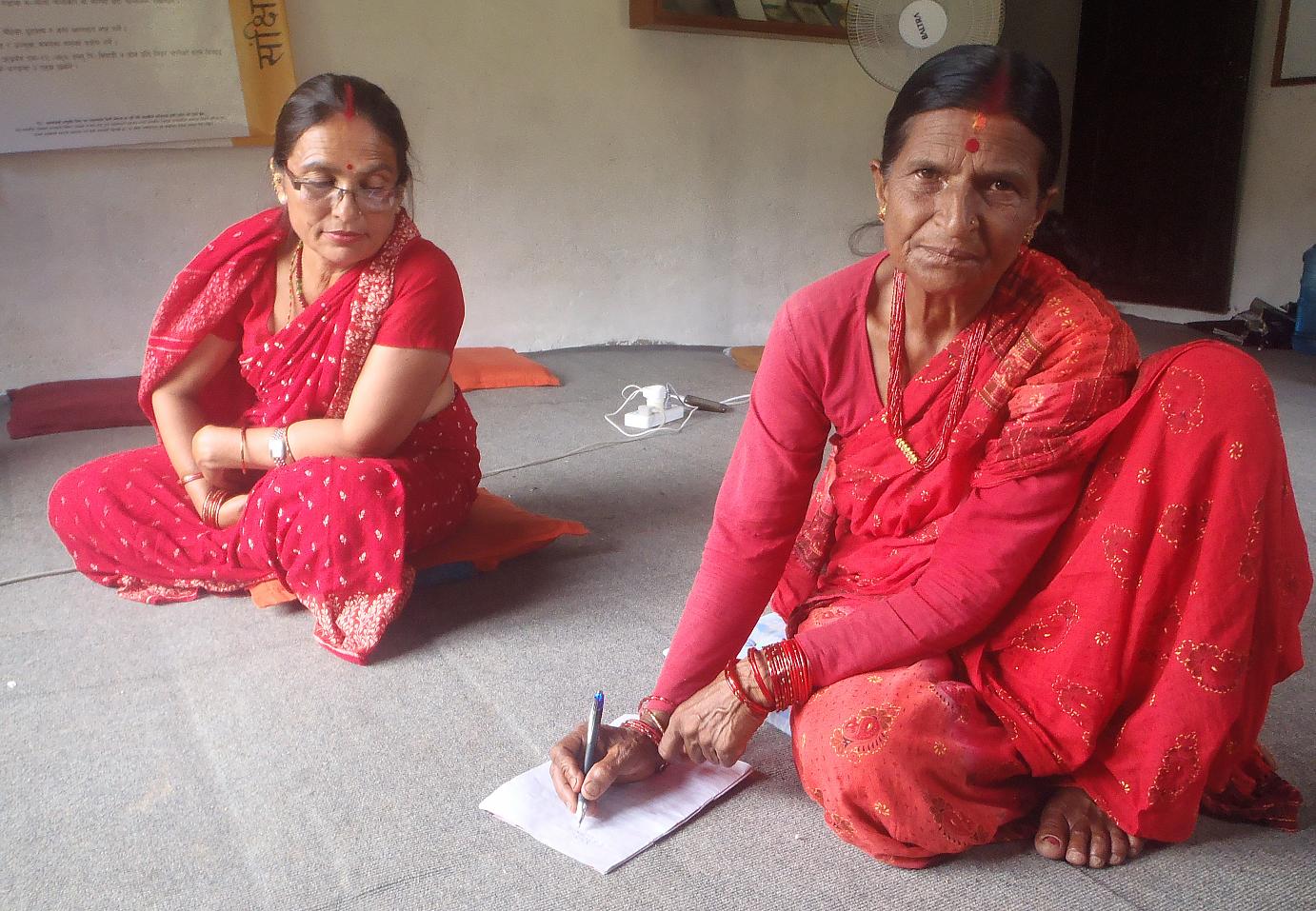
This is the first of a two-part guest blogger series from READ Nepal volunteer Melanie Avery on her experience with READ Global in Nepal.
Ka, Kha, Ga, Gha, Nga – my favorite letters of the Nepali alphabet. As an Australian living in Nepal, the national script Devanagari is foreign to me, as is the spoken language. I cannot read, nor write, and my ability to carry a conversation in Nepali is limited.
I’ve been fortunate enough to stumble into a volunteer placement with the READ Center in Baluwater, Kathmandu. I say fortunate, because it’s the kind of role I’d love to have back home. I’m writing and editing different documents; training manuals, case studies, blog stories, and brochures – checking English translations and helping with formatting and content development. In English, I am literate.
The irony is that here in Nepal I find myself essentially “illiterate.”
It is an experience that has made me far more aware of the challenges faced by the 796 million children and adults in the world who lack even basic literacy skills.
Nepal is a country where the gross national income (GNI) per capita is just $700 US, and unemployment hovers at around 50%. Where your caste and connections can dictate your education and work opportunities.
In Nepal, the total adult literacy rate is around 57%. For the other 43%, those who cannot put pen to paper and who cannot read the daily news, life becomes very limiting. You are limited in your work choices, who you can socialize with, and your contributions to the community. You cannot make a call, pay a bill, or count your own change.
Consequently, many non-government organizations (NGOs) have entered Nepal with various programs and ideas to alleviate poverty and gender inequality by creating a literate society through education. READ Nepal is one such organization, but they use a model that I see as making an actual difference.
Even with the many limitations of Nepal – the lack of appropriate educational infrastructure, poor staffing and standards of education, remoteness and rural isolation, inadequate transport infrastructure, ingrained gender inequalities, and abuses of child labor – READ’s model seems to work.

The premise of READ is simple enough: they establish community libraries and through these libraries provide a number of programs and educational opportunities, from language and literacy to agriculture and business training.
Starting from the bottom-up, no project will be undertaken without the support and involvement of the local community, be it through a committee of dedicated locals, donations of land or buildings, a percentage of funds, etc. Insisting on such partnerships means the community takes ownership of each and every center. READ Global becomes the catalyst and the READ Centers’ become the vehicle for social and economic transformation.
Each Center is supported by a for-profit enterprise, which is established with seed funding provided by READ after community consultation. Together, the facilities and services provided by READ in Nepal are empowering and life changing – bringing language and learning to anyone who wants it.

Take Durga Timilsina (67 years old) and Sanu Kanchi Neupane (42 years old) from Kunmari Village in Nuwakot who recently took literacy classes at the Shree Janajagaran Library in Nuwakot.
Both were illiterate, both were denied an education as children because they were girls.
Now they can sign their names, read simple text, and do basic math calculations; they can understand a calendar and use their mobile phones by themselves.
I was most touched listening to Sanu speak of the times when (as a child) she used to try and learn by reading her brothers ‘dhulot’ (clay tablet), on which they had learned to read and write their letters. Some thirty years later, she now feels her persistence has paid off. With the support of her husband and family, she hopes to continue learning and maybe even become a teacher herself, one day.
For me, my language course is officially finished and I have to admit I’ve been a poor student. The Devanagari script remains foreign to me and a complete sentence remains out of the question, but “bistarai, bistarai ma nepali sikchu” (slowly, slowly I am learning Nepali).
It’s more than a need for language or literacy. It’s my desire to feel part of something, to fully immerse in a community and a culture with which I now feel strong connections.
About the guest author:

Melanie Avery, READ Nepal Volunteer
I’m an expat Australian living with my long-term Nepali partner Kendra Gandharba in Kathmandu. I spent 6 months volunteering in India in 2012, during which time I met Kendra who studied there as a music therapist and gained an interest in Community Development. Prior to my time in India and Nepal, I worked as an Administrative Officer with the Outback Queensland Tourism Association, and various local government offices in Longreach, Queensland. I have completed a Bachelors of Business Administration (Management) through James Cook University and a Certificate of Arts in Asian Studies through University of Melbourne – It’s a big wide world and I’ve come a long, long way but, wouldn’t change a thing 🙂




